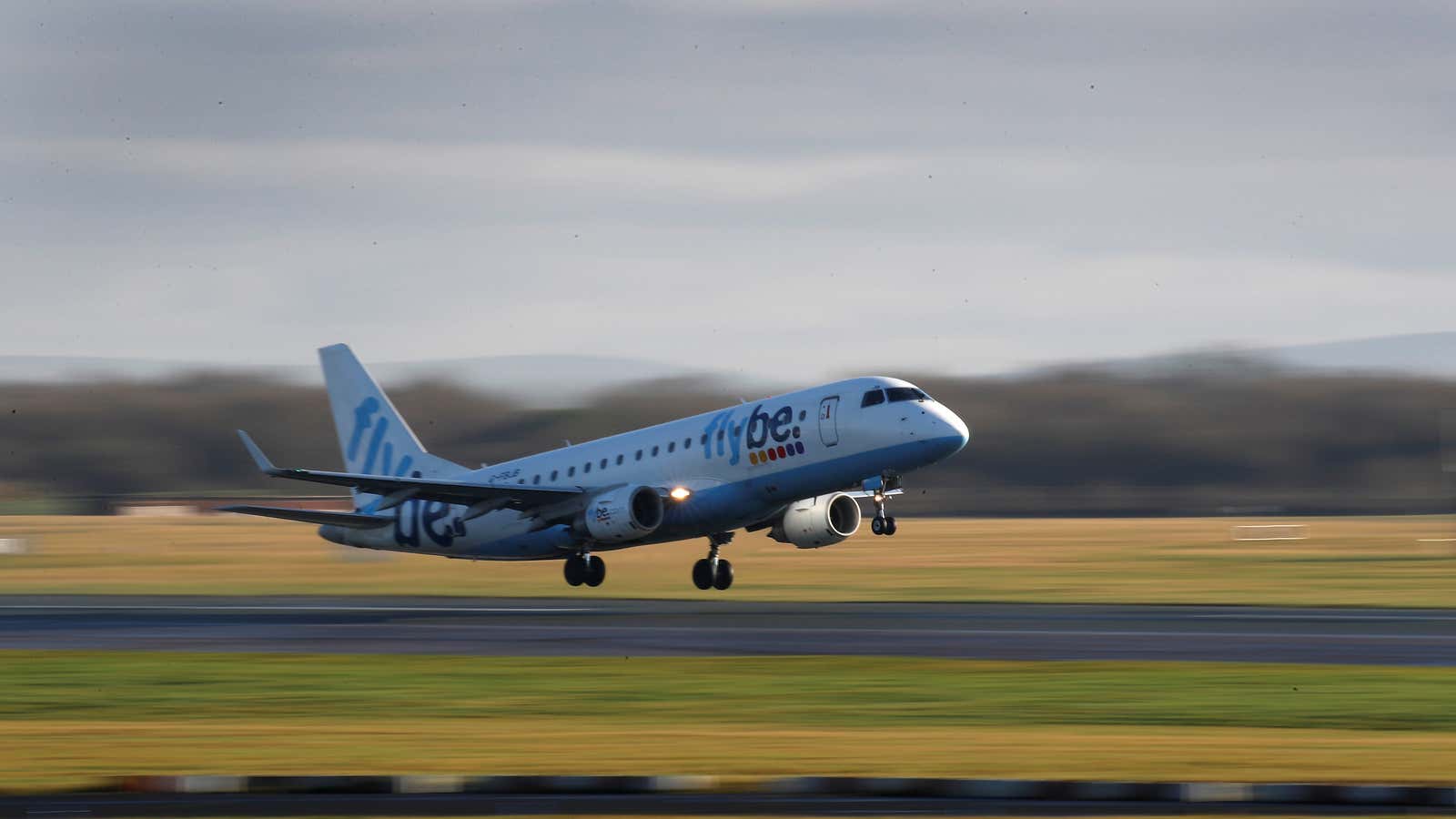Airlines were finally flying high. Lower fuel costs, robust balance sheets, and a roaring economy have recently propelled profits in an industry more accustomed to bankruptcies.
But the coronavirus threatens to bring that crashing down.
On March 5, the International Air Transport Association (IATA) doubled its estimated impact from Covid-19 to at least $63 billion—$113 billion should the disease continue spreading. Airlines flying in Asia, home to the outbreak’s epicenter, have already cut available seat miles by 23% this month, according to consulting firm Oliver Wyman. As the outbreak intensifies, other regions are making similar cuts, with only Africa and Latin America (where minimal cases have been reported) so far unscathed.
Airlines have bounced back before, of course, including after the 9/11 attacks, 2008 financial crisis, and 2009 swine flu (H1N1) epidemic. “After past disease outbreaks, demand has returned to normal,” notes Khalid Usman of Oliver Wyman, suggesting he’s not planning for a worst-case scenario.
Yet a Darwinian winnowing of the weak has already begun. Airline share prices have fallen nearly 25% since the outbreak started, far more than during the same period of the 2003 SARS epidemic, reports the IATA. One carrier filed for bankruptcy this week: the troubled British budget airline Flybe. Others are looking shaky.
It’s shaping up to be a battle of the balance sheets. Who can weather the storm depends on how fast the outbreak (or possible pandemic) lasts, and how governments shield their industries in a global economy powered by the movement of people and parts. So far, governments have revealed the limits of their powers: The US decision to cut interest rates by 50 basis points earlier this week did little to stop markets tumbling the next day.
The Trump administration is considering extending “timely and targeted” assistance to industries affected by the outbreak, White House economic adviser Larry Kudlow confirmed yesterday. But the former chief economist of Bear Stearns, a now-defunct Wall Street investment bank, downplayed the risk of coronavirus to the US economy, arguing it was mostly “contained.” That’s an assessment not widely shared by public health professionals—or economists.
This essay was originally published in the weekend edition of the Quartz Daily Brief newsletter. Sign up for it here.
